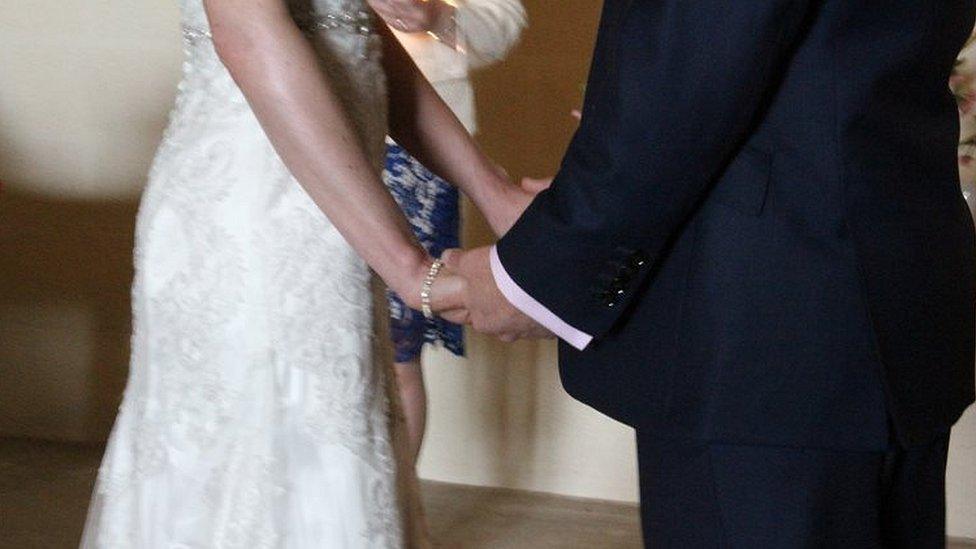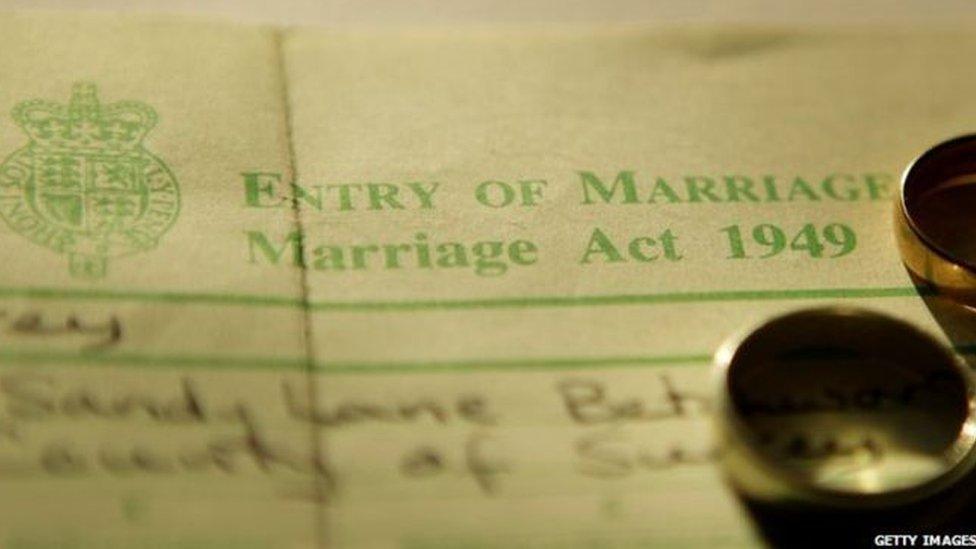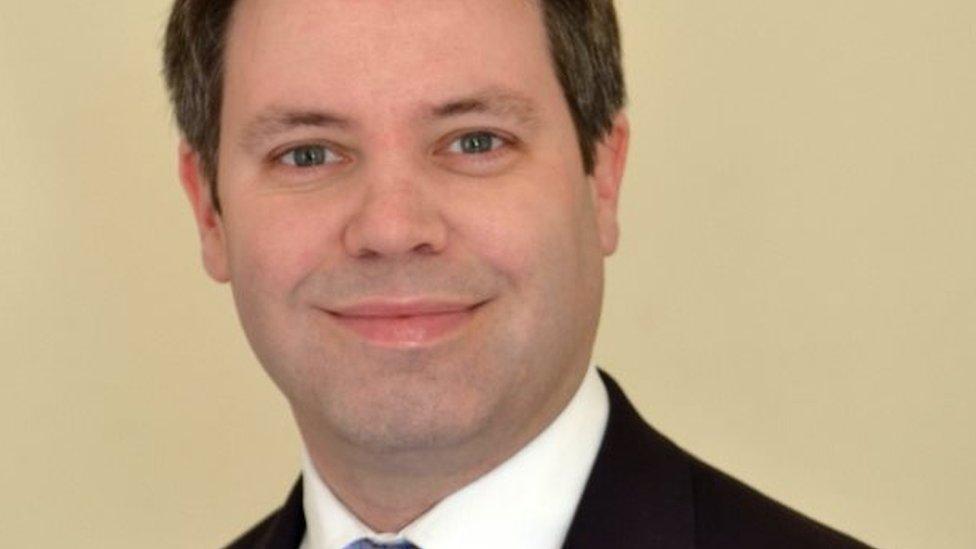'Keep sex abuse dad's name off my wedding certificate'
- Published

If Jenny ever gets married, there will be no dad walking her down the aisle and, if she gets her way, no mention of him on her marriage certificate either.
This is because, according to the twenty-something professional, the man who sexually abused her for 18 months from the age of seven "lost any right to be called my father".
Despite his horrific betrayal of the relationship between father and daughter, the current law gives the option for only his name and occupation to be recorded on her future marriage certificate - but not that of her mother "who has been mum and dad all wrapped up in one".
This system, of recording only the names of the father of the bride and groom on the certificate, dates back to the early years of Queen Victoria's reign.
While either party can ask for a line to be put through that box if they have never known their father or been brought up by a step-father, it's an inequality many people like Jenny feel should be addressed.
It is also an issue that has provoked anger among MPs from all parties, who have spent several years attempting to bring about a change in the law to allow both parents to have their names and occupations recorded.

Their campaign was given a boost when a petition on Change.org, calling for mothers' names to be added to marriage certificates, collected 70,600 signatures in January 2014. The petition said "marriage should not be seen as a business transaction between the father of the bride and the father of the groom".
Former Prime Minister David Cameron said later that year that he would address this "inequality in marriage", adding that the exclusion of mothers' names from marriage registers in England and Wales did "not reflect modern Britain".
Mr Cameron was gone from Downing Street before any action was taken and it now seems that Conservative MP Edward Argar's Registration of Marriage Bill is the most likely vehicle to overturn the law.

A brief history of marriage:
Marriage Act of 1836 - allowed non-conformists and Catholics to be married in their own places of worship
Ages of Marriage Act 1929 - Parliament raised the age limit to 16 for both sexes
Civil Partnership Act 2004 - granted civil partnerships to same-sex couples in the UK with rights and responsibilities identical to civil marriage
Marriage (Same Sex Couples) Act 2013 - introduced civil marriage for same-sex couples in England and Wales
There were 240,854 marriages in 2013, a decrease of 8.6% compared with 2012 and the first decline since 2009
The average age for a first marriage was 32.5 years for men and 30.6 years for women in 2013

His bill, which would update the Marriage Act of 1949, would move the solely paper-based system to a central electronic register online, which would allow the mother's name to be included.
It would also bring England and Wales into line with the rest of the UK. In Scotland and Northern Ireland, couples are asked to give the names of both parents on marriage documentation. The same applies for those entering a civil partnership.
Similar attempts by Labour and Conservative MPs to change the law fell in 2015 after failing to get ministers' support. Labour frontbencher Christina Rees' private member's bill focused on the narrow point about putting the mother on the certificate. Former Conservative cabinet minister Dame Caroline Spelman's bill, external wanted marriages listed in a single electronic register instead of in marriage register books.
Former home office minister Richard Harrington said at the time "a combination" of the two bills "could deal with things quickly".
Unlike his predecessors', Mr Argar's bill - which is more like Dame Caroline's attempt - has succeeded in getting government backing because it will create a more secure system for keeping marriage records.
"The whole point of this bill is the mothers and fathers of the bride and groom will be registered," said the Charnwood MP. "In the great scheme of things it's a minor change, but it's symbolically very important for a large number of people who want a recognition of the role their mother played in their upbringing."

Mr Argar hopes for a change in the law by the summer
He added: "It will also give victims of abuse, children of single mothers or errant fathers, the choice over whether to include their mother's names and not their father's.
"You will see virtually no outward change in the form of the marriage ceremony, just in the manner that things are recorded. By moving to an online schedule system, we can easily amend the paper documentation - and it's more secure because it doesn't rely on the old parish register that is at risk of theft from the village church.
"The church is supportive of the move, and over time it will save the taxpayer millions of pounds in administrative costs."
The bill is set to return to the Commons for its detailed committee stage after the half-term recess, and Mr Argar is hopeful it will receive Royal Assent - and so become law - by the summer.
A spokesman for the Home Office said it wanted to see mothers' names recorded on marriage certificates "as soon as possible".
Mum's done everything
For Jenny, whose name has been changed to protect her identity, the law change cannot come soon enough.
"My dad's a rapist and he abused me and my sisters, so I never want any reference to him appearing on anything about my future," she said. "He has no right to that - he lost that right many years ago.
"I was only seven when the attacks started, and my siblings were much younger. It ended after I told my mother when I was eight and a half.
"I've tried to block out what he did to me.
"I have a partner and I'm sure we will get married eventually, but I don't want my father involved in any way. I'd only want my mum's name on the marriage certificate because as far as I'm concerned she's done everything for us."